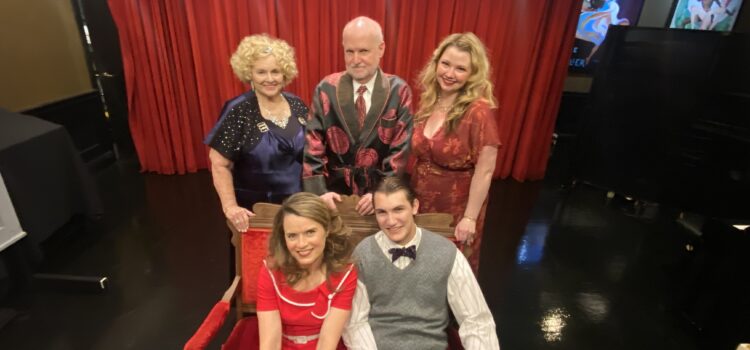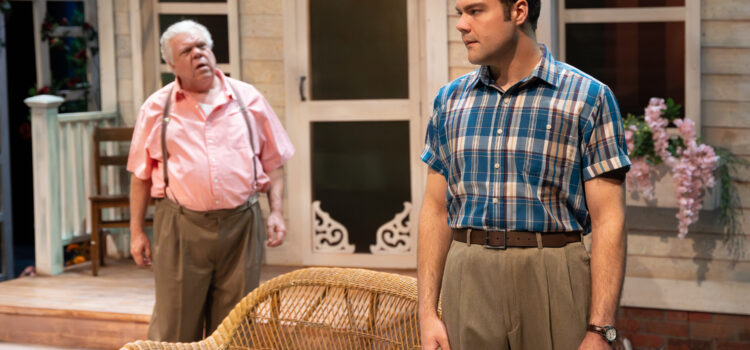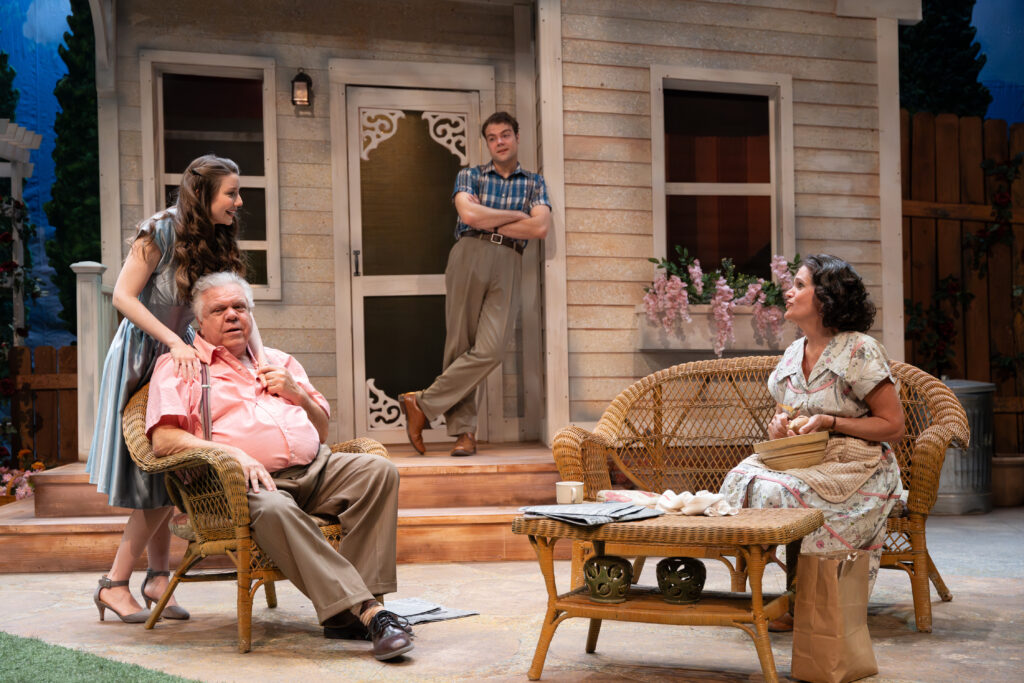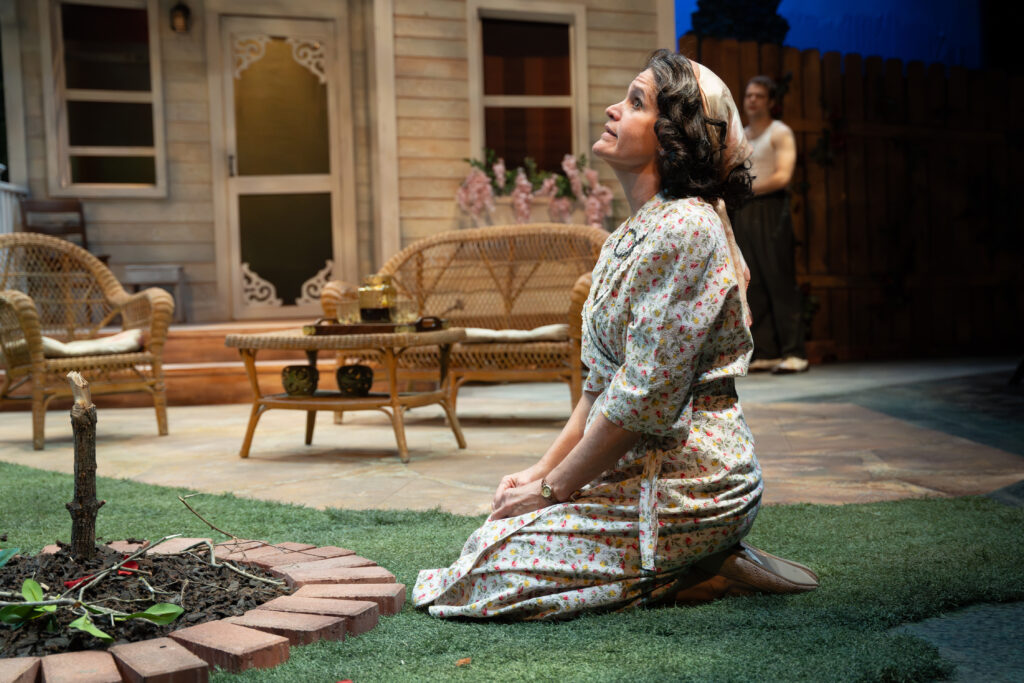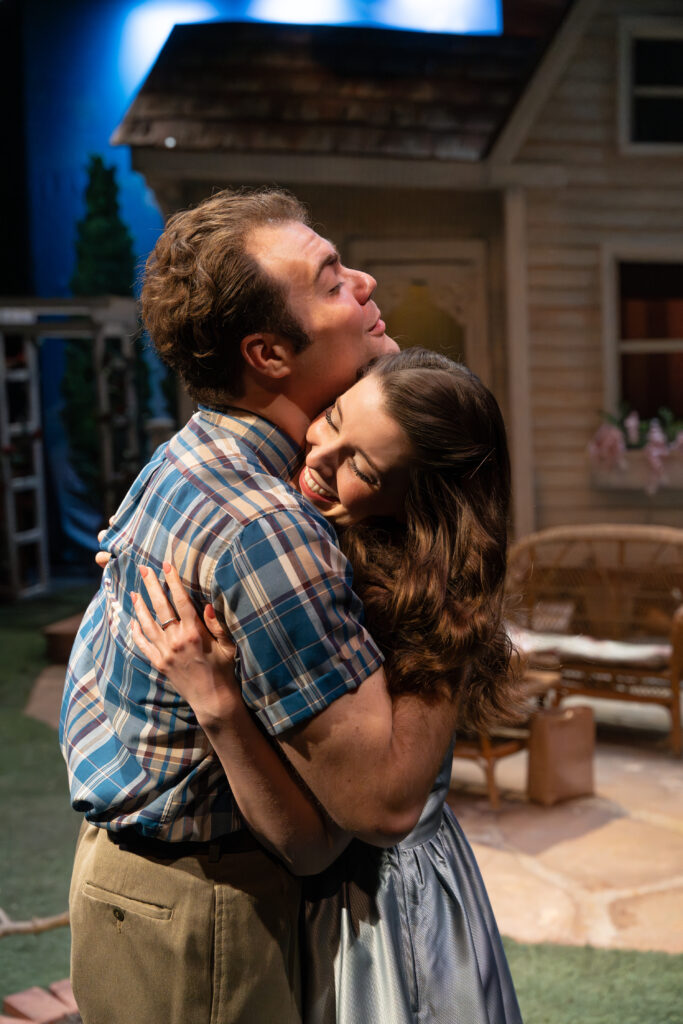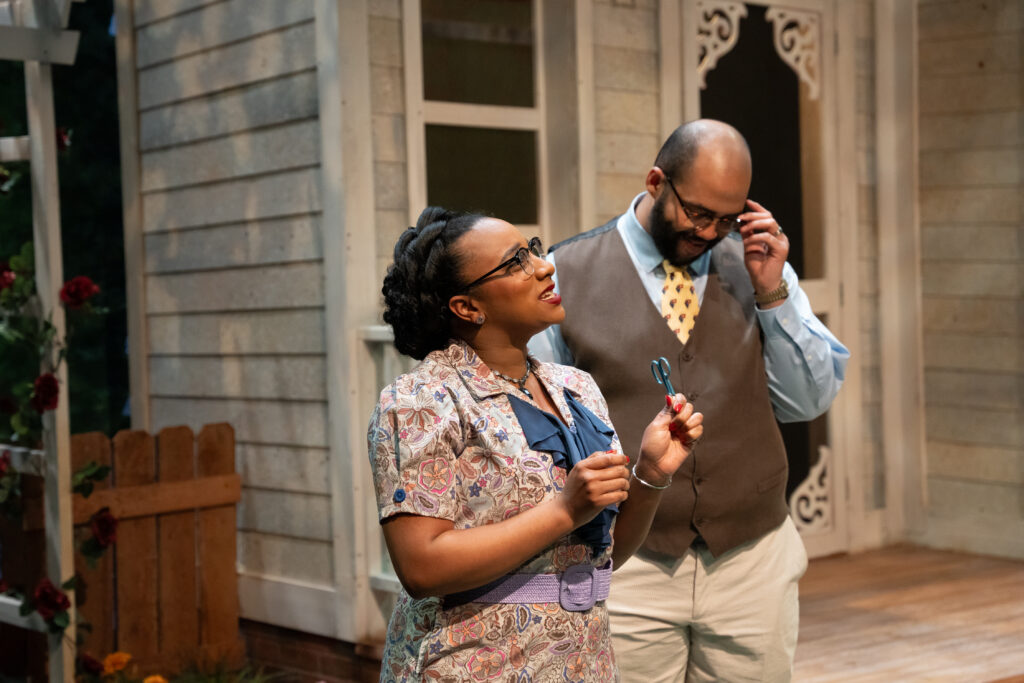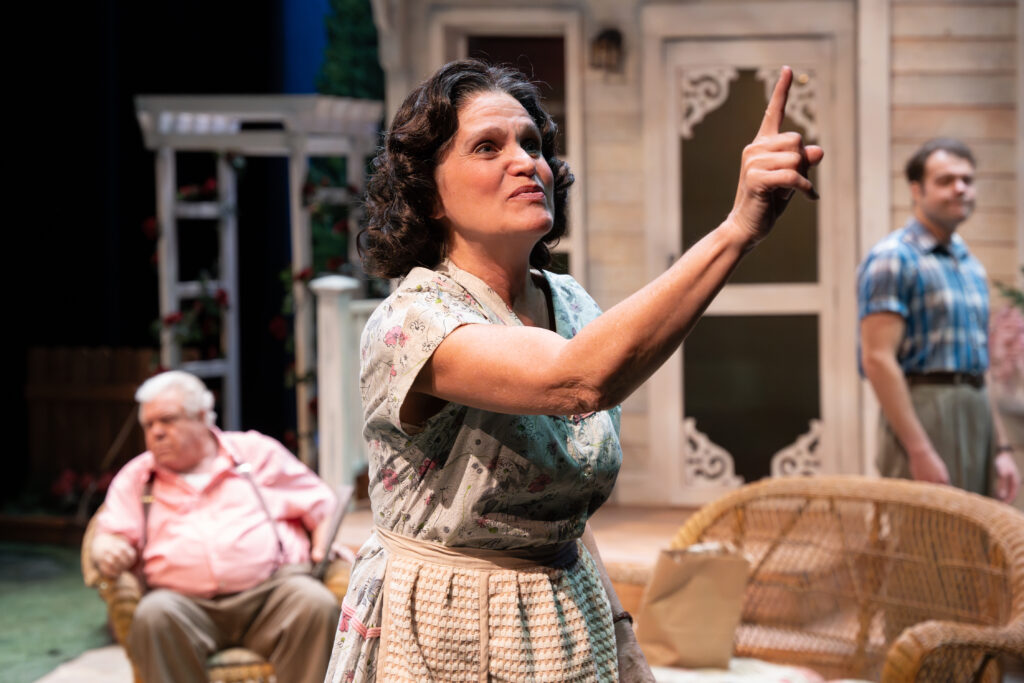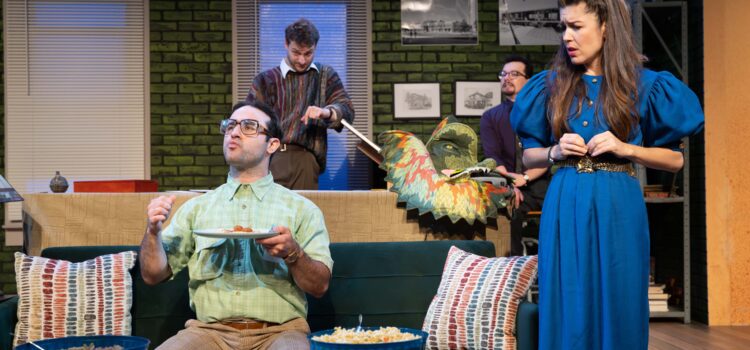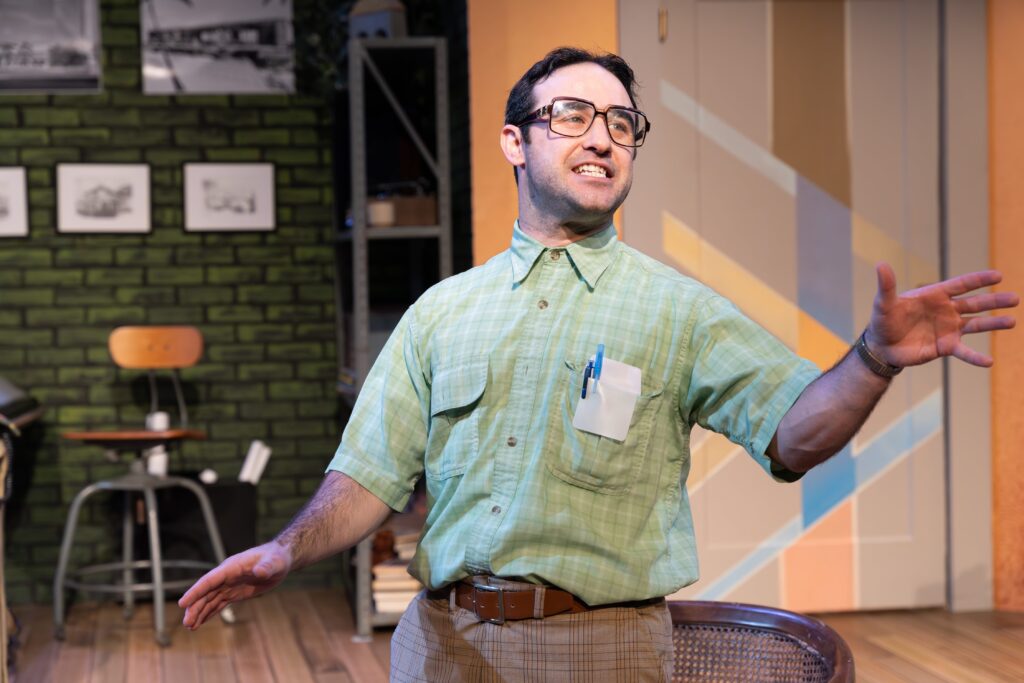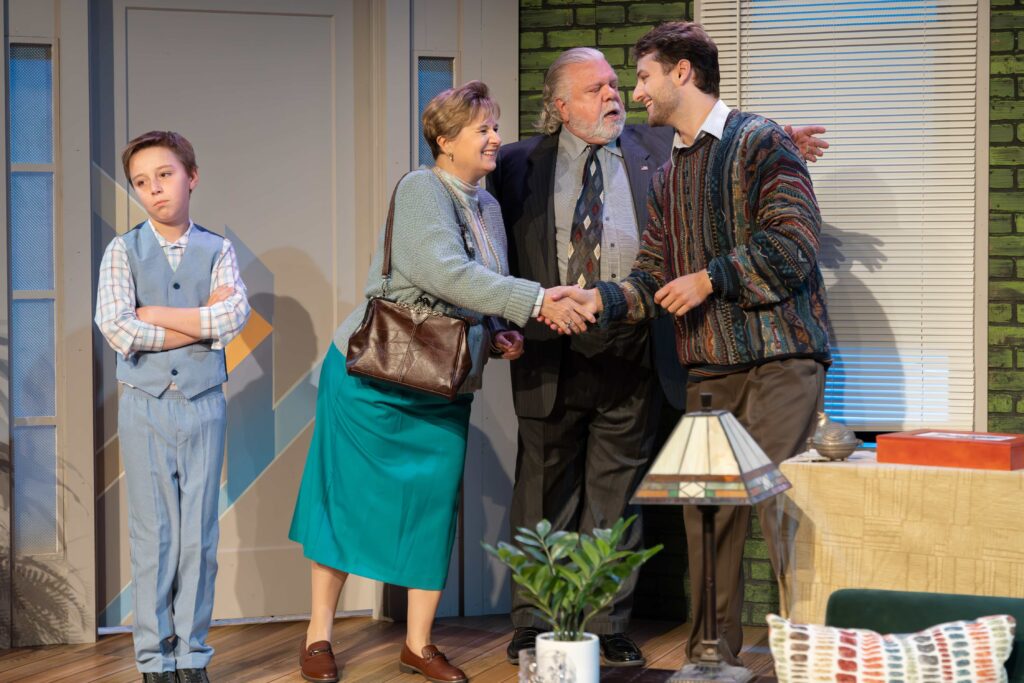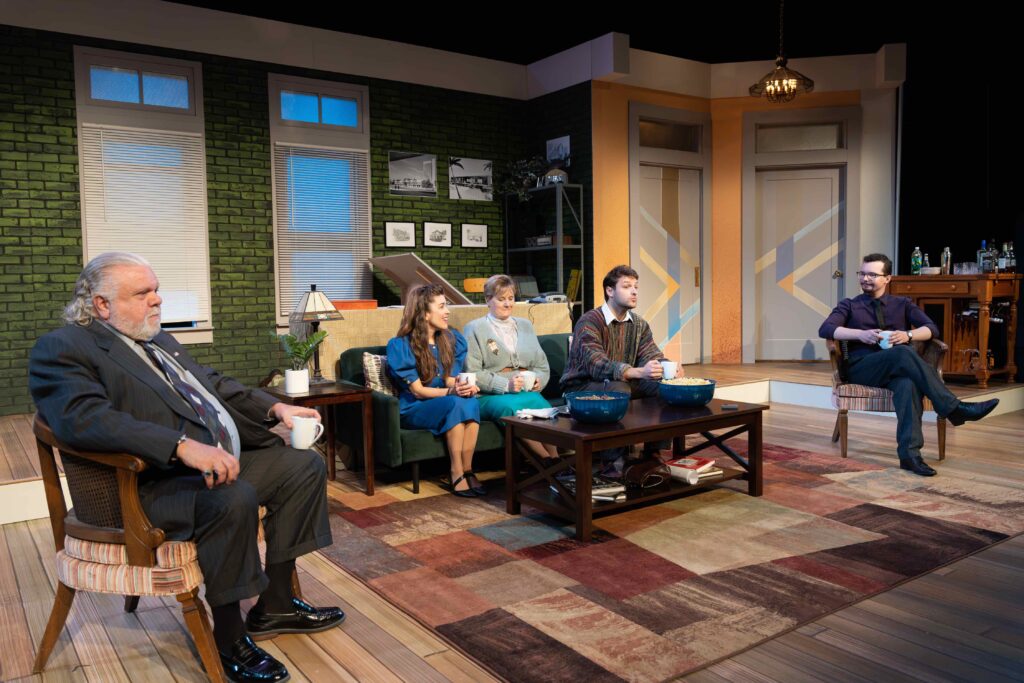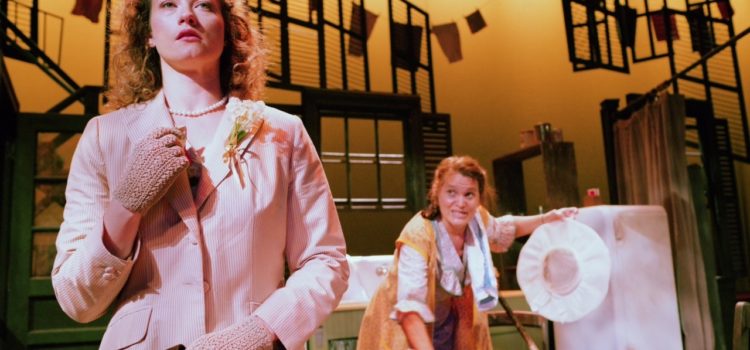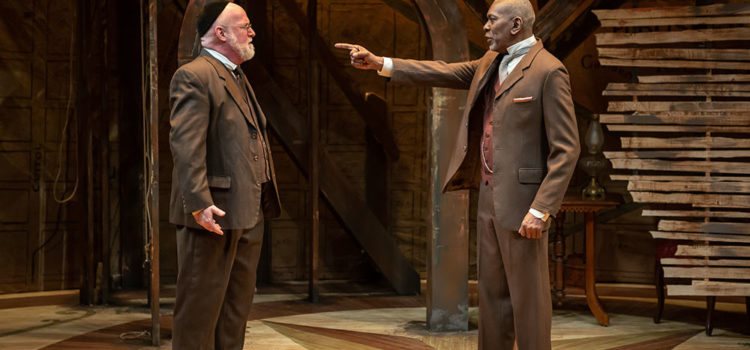By Lynn Venhaus
Imagine the Grand Center Arts District almost a century ago as a glittery hub of movie theatres, dance halls, restaurants and hotels. Now be transported to those days through the lens of a young Tennessee Willams in a smart, thoughtful and charming presentation, “Life Upon the Wicked Stage.”
When the future Pulitzer-Prize winning playwright was finding his place in the world, as an aspiring writer in St. Louis, he was drawn to the moving pictures of the 1920s and 1930s. With stars in his eyes and a vivid imagination, he wrote short stories and one-acts where he wondered what it would be like to be famous and in show business.
Threading songs of vaudeville together in a stylish program featuring his theatrical slice-of-life one-acts “In Our Profession,” “The Magic Tower” and “The Fat Man’s Wife,” the Tennessee Williams Festival has taken a novel approach to storytelling while spotlighting Grand Center as a vibrant part of the St. Louis arts community.
This pitch-perfect cast is under the astute direction of Brian Hohlfeld, who helmed the masterful “The Glass Menagerie” in 2021 and excelled in radio play presentations “Something Spoken.”
They are convincing in taking us back to a golden era: Julie Layton, Gary Wayne Barker, Dominic DeCicco, Julia Crump and Donna Weinsting appear like characters out of “Stage Door,” with lovely vintage outfits expertly assembled by costume designer Teresa Doggett.
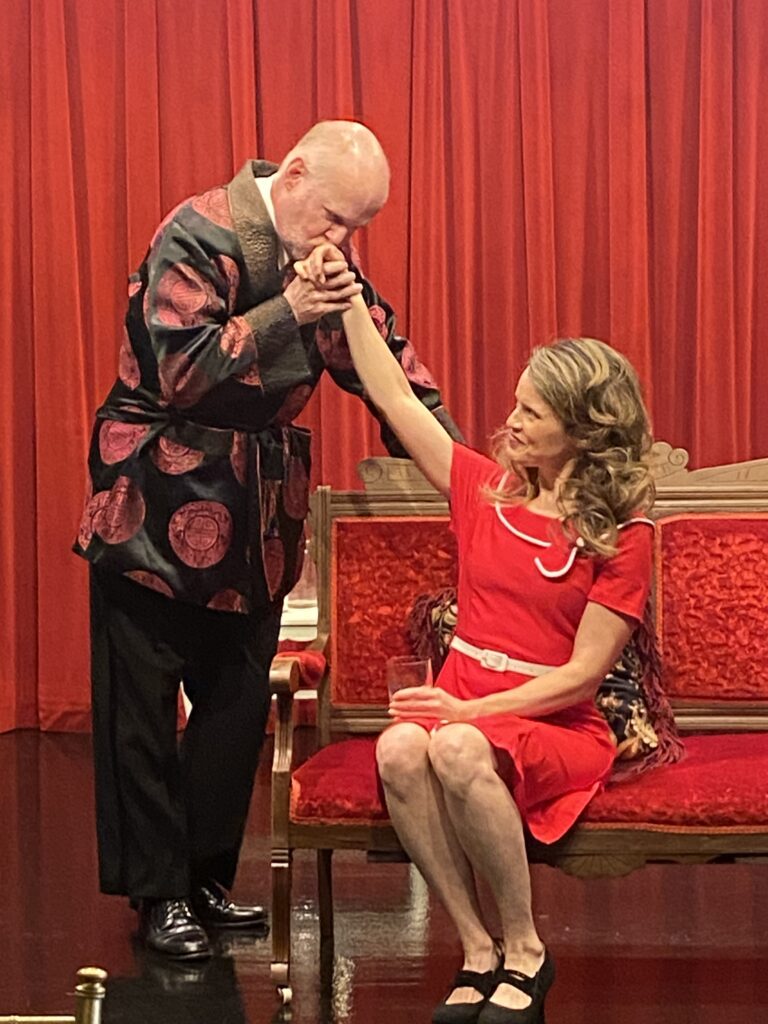
During the past nine years, the festival has been built around a theme or location specific to Williams’ life in St. Louis and other influences on his world-renowned career. Dreamer Tom Williams must have felt at home among the avant-garde artists and smoky jazz clubs in midtown, identifying with the hopes and restlessness of showbiz folks.
One of the most enriching aspects of this unique local festival is showcasing his lesser-known one-act plays, and we can witness an artist developing his voice, and this collection is splendid.
That impact of the popular entertainment of his youth, and his desire to be a part of the glamorous life, is evident in these richly textured depictions staged simply in an intimate retro setting.
In these three curated one-acts, he has fashioned erudite backstage dramas about the nomadic life of touring performers, its toll on private lives, and a more jaded look at those with long-established careers.
In this trio, Julie Layton’s remarkable portrayals as Annabelle, during phases of the character’s life as an actress, is the person that connects them all. (Poetic license used in keeping the same female protagonist, but it works well).
As she slips into this woman’s particular periods with ease, she deftly conveys different emotional needs as the role dictates. Layton was part of two very popular festival works, the St. Louis Theater Circle Award-winner “A Lovely Sunday for Creve Coeur” and “Will Mr. Merriwether Return from Memphis?” in 2017, along with an earlier appearance as Annabelle in “The Rooming House Plays.”
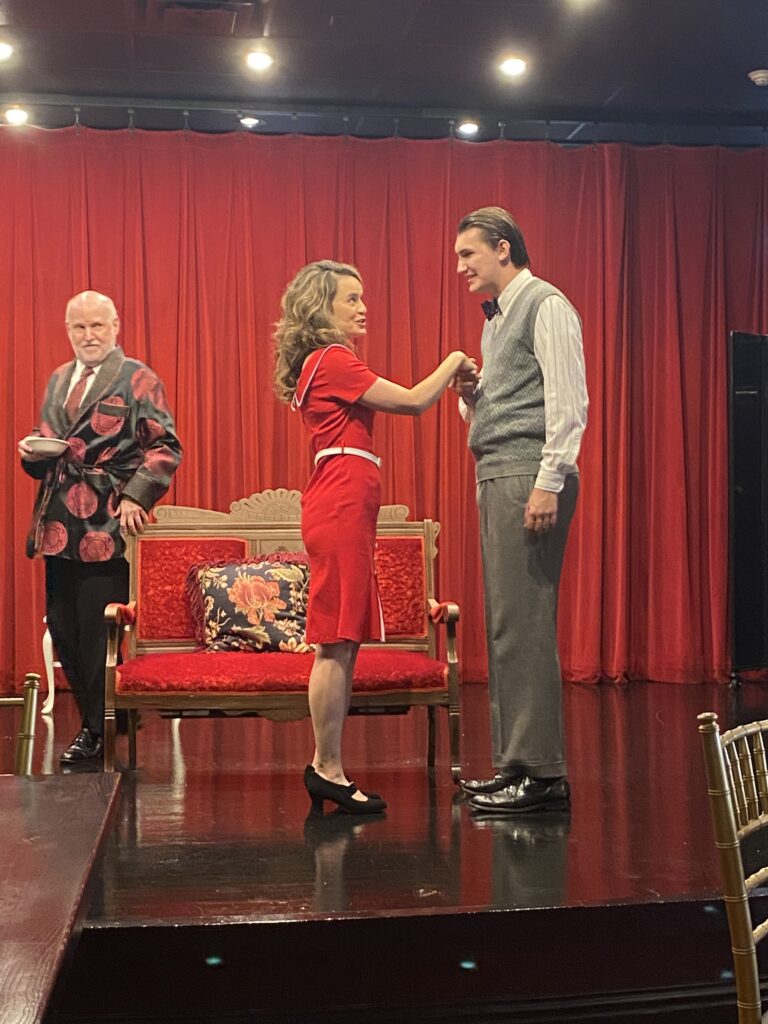
In “In Our Profession,” Layton is a ditzy, needy ingenue who clings to an older gentleman, an exasperated Richard superbly embodied by Barker, who is not prepared for Anabelle’s overstepping her boundaries by pushing him to marry her after only one night together in St. Louis.
She sees him as a ticket to stability, her chance to get off the road. He tries to free himself from her clutches. Dominic DeCicco is his naïve neighbor Paul, whom she takes an immediately liking to, which complicates her plans. If only her desire for escape was that easy.
In the middle one, “The Magic Tower,” Annabelle is a lovesick newlywed who is married to a struggling starving artist, Jim, sweetly played by DeCicco. She’d like to shut out the world with a fantasy life in their dismal studio apartment but reality intrudes.
Weinsting is their landlord Mrs. Fallon, trying to collect overdue rent, and two friends also stop by with a proposal of their own — Crump is her chorus-girl pal Babe and Barker is Mitch, who is part of the touring company she left. Will she come down to earth?
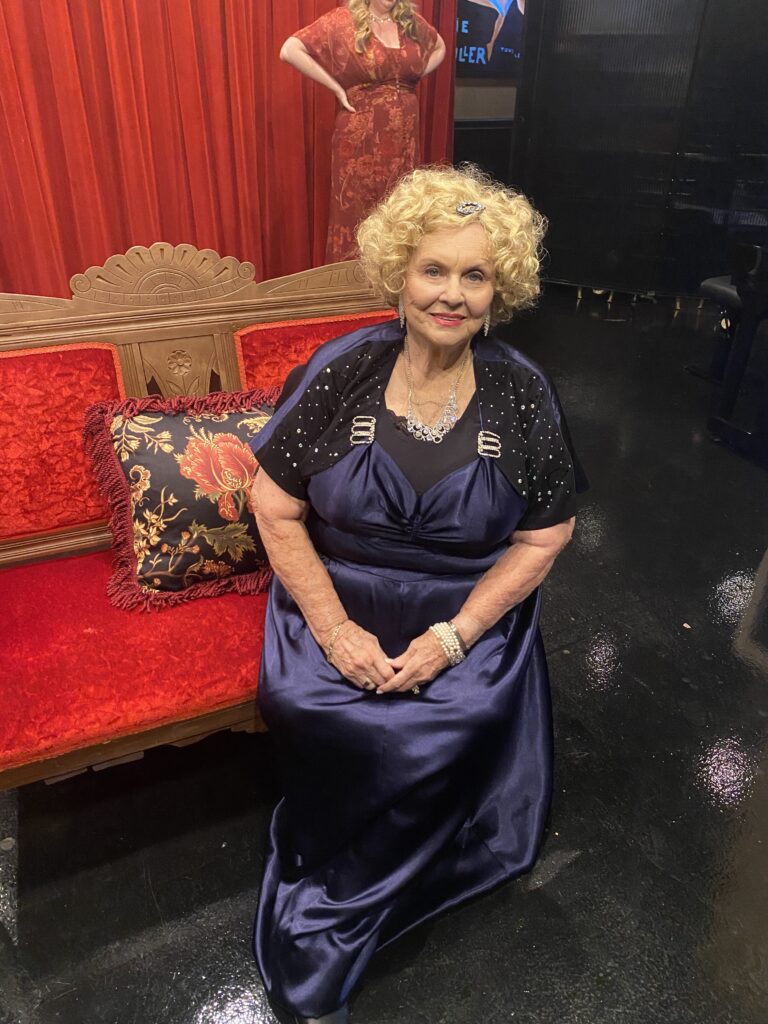
In the final work, “The Fat Man’s Wife,” Annabelle comes full circle as a cynical former actress who married a prominent producer, Joe (Barker). It’s New Year’s Eve, 1938, and she embodies a sophisticated Lauren Bacall-type, whose flirtation with a promising young playwright Dennis (DeCicco) during a party, spills over to a quarrel at home.
The hotshot stops by to try to convince her to run away with him while her husband is having a clandestine tryst. Will she opt for a tantalizing unknown adventure or her routine life of luxury?
This is the strongest of the three and all displays Williams’ keen psychological insight into dashed hopes and dreams, and mismtched couplings. They each offer fascinating different perspectives about gypsy entertainers and the uncertainties they face.
The Curtain Call Lounge, which is operated by the Fox Theatre next door, is a savvy venue choice, for with its bygone era décor, it harkens back to that time when vaudeville and moving pictures were still flourishing on that Grand Boulevard strip.
With a natural vocal delivery, Crump and Weinsting sing standards, with Weinsting distinctly presenting the showstopper “I’m Still Here,” Stephen Sondheim’s 1971 classic from “Follies” about the resilience of longtime chanteuses and their rollercoaster ride in show business.
Both Crump and Weinsting were part of the TWStL’s first season’s triumphant “The Rooming House Plays” in 2016 and Crump notably has made an impression in “You Lied to Me About Centralia,” “The Rose Tattoo,” and “Stairs to the Roof.”
Songs include “Skylark,” “My Blue Heaven,” “Side by Side,” “Pennies from Heaven” and “Some of These Days,” with esteemed music director Tom Clear accompanying on piano.
Spencer Lawton keeps things on point as the stage manager, and the entire effort revitalizes Williams’ earlier works in a most appealing way. The attractive production elements endear and the performances are irresistible.
This is a wonderful way to spend an afternoon seeing the legendary playwright develop his unmistakable style right here in St. Louis, which will hopefully deepen appreciation for his considerable gifts.
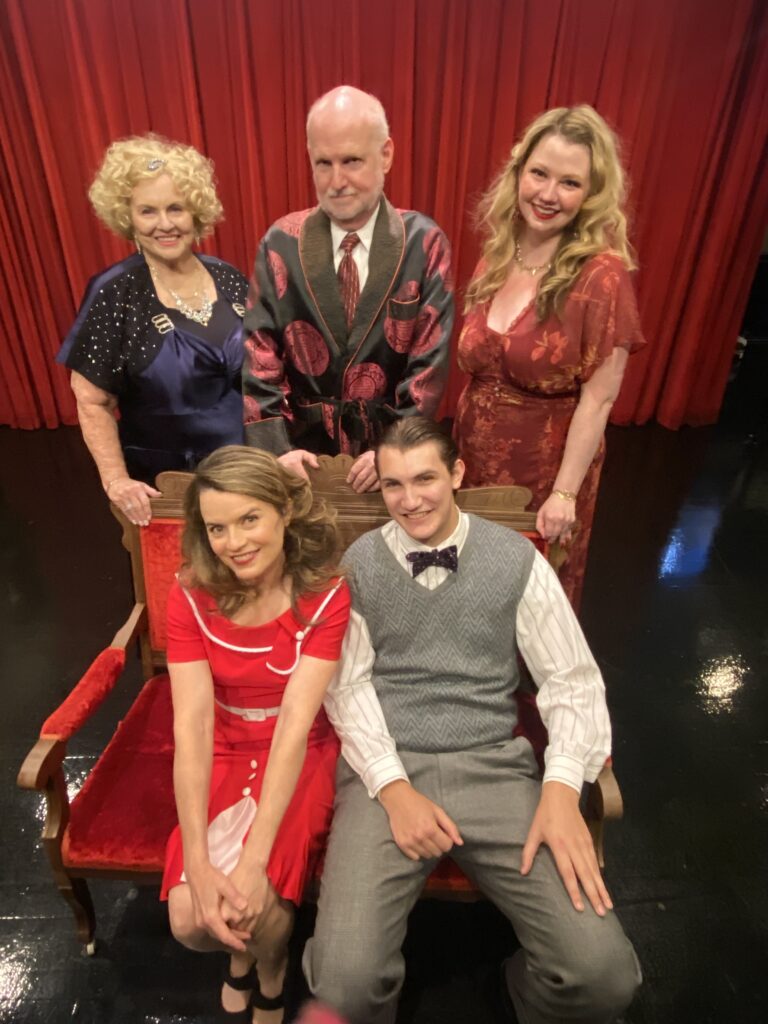
The Tennessee Williams Festival St. Louis presents “Life Upon the Wicked Stage” in eight performances, at 1 p.m. and 4 p.m. Saturdays and Sundays, Aug. 10 and 17 and Aug. 11 and 18 at the Curtain Call Lounge, 521 N. Grand Blvd 63108. The bar is open during performances. Tickets are available through MetroTix. Parking is available at a discount in the Fox Garage (mention the festival for the sale price). For more information, visit www.twstl.org.

Lynn (Zipfel) Venhaus has had a continuous byline in St. Louis metro region publications since 1978. She writes features and news for Belleville News-Democrat and contributes to St. Louis magazine and other publications.
She is a Rotten Tomatoes-approved film critic, currently reviews films for Webster-Kirkwood Times and KTRS Radio, covers entertainment for PopLifeSTL.com and co-hosts podcast PopLifeSTL.com…Presents.
She is a member of Critics Choice Association, where she serves on the women’s and marketing committees; Alliance of Women Film Journalists; and on the board of the St. Louis Film Critics Association. She is a founding and board member of the St. Louis Theater Circle.
She is retired from teaching journalism/media as an adjunct college instructor.

